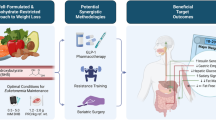Abstract.
Glycogen storage disease type I (GSD I) is a relatively rare metabolic disease and therefore, no metabolic centre has experience of large numbers of patients. To document outcome, to develop guidelines about (long-term) management and follow-up, and to develop therapeutic strategies, the collaborative European Study on GSD I (ESGSD I) was initiated. This paper is an descriptive analysis of data obtained from the retrospective part of the ESGSD I. Included were 231 GSD Ia and 57 GSD Ib patients. Median age of data collection was 10.4 years (range 0.4–45.4 years) for Ia and 7.1 years (0.4–30.6 years) for Ib patients. Data on dietary treatment, pharmacological treatment, and outcome including mental development, hyperlipidaemia and its complications, hyperuricaemia and its complications, bleeding tendency, anaemia, osteopenia, hepatomegaly, liver adenomas and carcinomas, progressive renal disease, height and adult height, pubertal development and bone maturation, school type, employment, and pregnancies are presented. Data on neutropenia, neutrophil dysfunction, infections, inflammatory bowel disease, and the use of granulocyte colony-stimulating factor are presented elsewhere (Visser et al. 2000, J Pediatr 137:187–191; Visser et al. 2002, Eur J Pediatr DOI 10.1007/s00431-002-1010-0). Conclusion: there is still wide variation in methods of dietary and pharmacological treatment of glycogen storage disease type I. Intensive dietary treatment will improve, but not correct completely, clinical and biochemical status and fewer patients will die as a direct consequence of acute metabolic derangement. With ageing, more and more complications will develop of which progressive renal disease and the complications related to liver adenomas are likely to be two major causes of morbidity and mortality.
Similar content being viewed by others
Author information
Authors and Affiliations
Additional information
Electronic Publication
Rights and permissions
About this article
Cite this article
Rake, J., Visser, G., Labrune, P. et al. Glycogen storage disease type I: diagnosis, management, clinical course and outcome. Results of the European Study on Glycogen Storage Disease Type I (ESGSD I). Eur J Pediatr 161 (Suppl 1), S20–S34 (2002). https://doi.org/10.1007/s00431-002-0999-4
Issue Date:
DOI: https://doi.org/10.1007/s00431-002-0999-4



